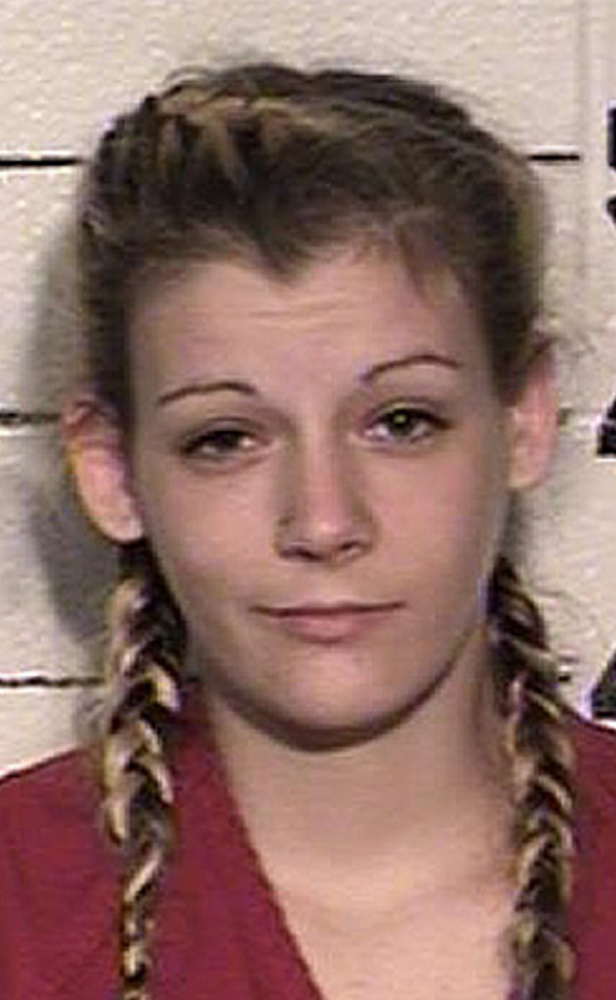PORTSMOUTH, N.H. — Half asleep at 1 a.m. on June 15, Jamie Cahill made her way to the bathroom of her Portsmouth apartment and discovered the body of her younger brother lying on the floor with a burnt spoon and hypodermic needle nearby.
“It was the worst thing in my 33 years, just to be so helpless. There was nothing I could do,” she said through tears, adding that as the oldest of six children, she had always felt responsible for her siblings. She was grateful that one of her young children hadn’t woken to go to the bathroom that night and found their uncle first.
What she and others in his family wrestle with is how the person he was with – who is also the person accused of selling him the drugs he overdosed on – could leave rather than try to get him some help.
Joseph Cahill, 27, of York, struggled with addiction but he would never have left someone to die, she said.
“He cared about other people more than he cared about himself,” she said.
As news spread that Amanda Burgess, 26, of Portsmouth had been charged this month with selling Cahill the dose of fentanyl that killed him, Cahill’s family members painted a picture of a young man who was more than his addiction.
“It never stopped him from being who he is,” said his brother James Cahill, who is a year older. “Joe always wanted to do better. He wanted to have a better life.”
Addiction has been a painful burden for the Cahill family.
Their father died of a cocaine overdose when they were young and growing up in York. Other siblings also have struggled with addiction and had run-ins with the law. Their mother has said she was addicted to prescription painkillers.
Joseph Cahill had been sober for a year and a half, was going to support meetings for people in recovery and giving rides to others who had no way of getting there. He became a popular fixture in the Portsmouth neighborhood where Jamie Cahill lived, with local kids calling him Uncle Joe. He would give them rides to sports practices.
“He was like a soccer mom,” James Cahill said.
Joseph Cahill worked as a laborer and a cook. He had broken his arm at one point and, having no insurance, left it to heal on its own, said James Cahill. Shortly before his death, Joseph Cahill had surgery on the arm because the pain kept him from working. The hospital prescribed opiate painkillers and James Cahill believes that’s what started his brother using again.
Weeks before his death, family members suspected he again was using drugs. Jamie Cahill found a burnt spoon in her apartment.
On June 14, according to court papers, Joseph Cahill texted Burgess and asked if she had any heroin. They met behind a dumpster at 8 p.m. then went inside his sister’s apartment to use the drug, court papers said.
Jamie and James Cahill said their brother had to have someone else inject him because he hated needles so much. They wondered whether Burgess, in addition to selling him the drug, also injected it into him.
The indictment charged her with sale of a controlled drug, death resulting, and does not say how he took the drug. It says she sold him fentanyl, up to 50 times more powerful than heroin, though she told police it was heroin. It’s not clear whether she knew what it was.
Burgess told her mother that she was with Cahill and watched him die, but panicked and did not call 911, according to court records. She texted her mother at 3 a.m., but that was after she already had left the apartment.
It’s not clear what time Cahill took his fatal dose, but when rescue workers arrived at Jamie Cahill’s home just after 1:20 a.m., they performed CPR and used Narcan to try to reverse the affects of the synthetic opiate.
Jamie Cahill understands that users often become dealers to support their own addiction. What she finds most troublesome was Burgess’ decision not to tell anyone when Joseph Cahill was in trouble.
“I was here. My kids were here. This girl didn’t wake anybody,” she said. “Why didn’t you wake somebody up?”
She wonders how long her brother lay there before she found him, and whether he’d be alive today if she had woken up earlier.
James Cahill believes that such a near-death experience might have gotten his brother sober. He says he knows people who say Joseph Cahill’s death has led them to make changes in their lives.
“Everybody I know who has a drug issue wants to do better,” he said. “Every day it’s a struggle for them. It consumes them. But it doesn’t define who they are.”
Copy the Story LinkSend questions/comments to the editors.



Success. Please wait for the page to reload. If the page does not reload within 5 seconds, please refresh the page.
Enter your email and password to access comments.
Hi, to comment on stories you must . This profile is in addition to your subscription and website login.
Already have a commenting profile? .
Invalid username/password.
Please check your email to confirm and complete your registration.
Only subscribers are eligible to post comments. Please subscribe or login first for digital access. Here’s why.
Use the form below to reset your password. When you've submitted your account email, we will send an email with a reset code.